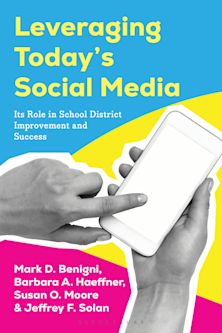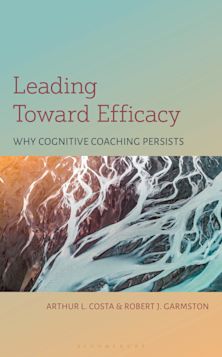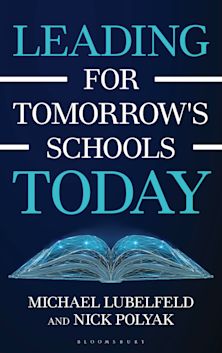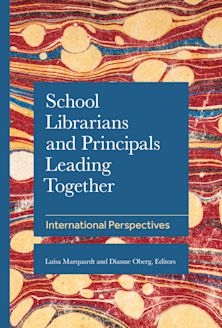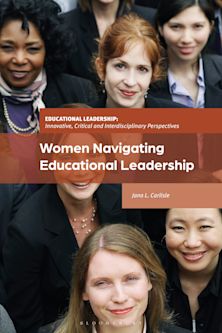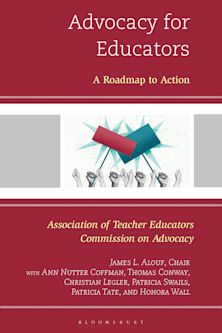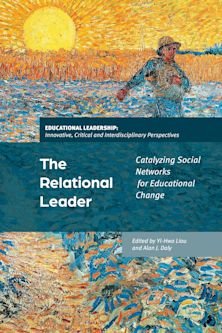- Home
- ACADEMIC
- Education
- Leadership and Management
- Communicating Effectively
This product is usually dispatched within 3 days
- Delivery and returns info
-
Free US delivery on orders $35 or over
You must sign in to add this item to your wishlist. Please sign in or create an account
Description
Communicating Effectively: Tools for Educational Leaders provides a unique perspective for aspiring and practicing educational leaders to expand their problem-solving and conflict-resolution strategies. Starting with an exploration of listening problems and solutions, this book evolves into an examination of how people perceive reality, what motivates them, and what happens when their needs are not met.
The concepts of Process Communication, developed by clinical psychologist Taibi Kahler through his background in transactional analysis, provide the basis for the techniques from which educational leaders might choose. Communicating Effectively suggests new ways to understand the people with whom we interact, thus giving the reader useful information on how to communicate with them effectively.
Table of Contents
2 The Start of Communication
3 Communication Blueprints: Different Tools for Different Builders
4 Pure Feeler: Barbara
5 Pure Thinker: Alfred
6 Pure Believer: Matthew
7 Pure Dreamer: Dorothy
8 Pure Funster: Angie
9 Pure Doer: Doug
10 Dealing With Conflict
11 Solving Problems Cooperatively: A Blueprint for Success
Product details
| Published | Dec 30 2003 |
|---|---|
| Format | Paperback |
| Edition | 1st |
| Extent | 192 |
| ISBN | 9781578860357 |
| Imprint | R&L Education |
| Dimensions | 9 x 6 inches |
| Publisher | Bloomsbury Publishing |
About the contributors
Reviews
-
The effectiveness of an educational leader is found in his or her ability to communicate successfully with all stakeholders in their organization. Scholarly and relevant, Dr. Michael Gilbert lays the framework for school administrators to deal with communication issues they encounter on a daily basis. Drawing from a wealth of research and personal experience, this book offers a myriad of practical suggestions for today's educational leaders. Dr. Michael Gilbert's vast knowledge of the Process Communication Model®, particularly as it applies to educators, provides valuable guidance for successful interactions that will enable both new and experienced educational leaders to increase the number of successful interactions they have both professionally and personally.
Rebecca C. Morriss, director of Special Services, Mountain Pine (AR) School District
-
Leadership must involve communication that is marked by concern and appropriateness of message. This is particularly true in education, where leaders must address the needs of students and multiple external constituencies as well, including parents, community organizations, accrediting agencies, and a host of others. Dr. Gilbert's book is a self-help handbook for success. It can be used by anyone in a leadership role, or indeed in any situation demanding successful interactions with others designed to create a productive non-confrontational environment.
Angela M. Sewall, dean, College of Education, University of Arkansas, dean of education at the University of Arkansas, Little Rock
-
Communicating Effectively: Tools for Educational Leaders is 'must reading' for school administrators, central office administrators, school board members, or anyone else in a leadership position. It offers real world, practical solutions to complex problems and helps to bridge the gap between theory and practice with my students who are teacher education credential candidates and educational leadership credential candidates.
Thomas L. Williams, EdD, Professor Emeritus Department of Teacher Education California State University, Sacramento
-
For the many practitioners in school administration who continually search for effective strategies to improve self and others, this book is a must. Dr. Michael Gilbert presents the research-based Process Communication Model as a practical, effective tool for understanding and responding appropriately to the real issues that confront administrators on a daily basis. Dr. Gilbert takes the mystery out of effective communication and provides a framework for the acquisition of related skills. It's more than just aninteresting read-it's an experience that can take the stress out of your leadership!
John Tackett, superintendent of the Lonoke School District, AR
-
...a reference work providing helpful advice for communicating with various individuals and groups. Gilbert offers practical scenarios for identifying one's own communication personality and the personalities of our colleagues. He provides specific suggestions on ways to interact with others so that the message we wish to communicate is truly understood.
School Administrator
-
The author has drawn from theory, research, and practice to build a compelling case for developing skills for effective communication. His focus is on the work of educational leaders, but the plan he promotes for communicating is facilitating for every human interaction.
Ray E. Bruce, Professor Emeritus of Educational Leadership, University of Georgia












